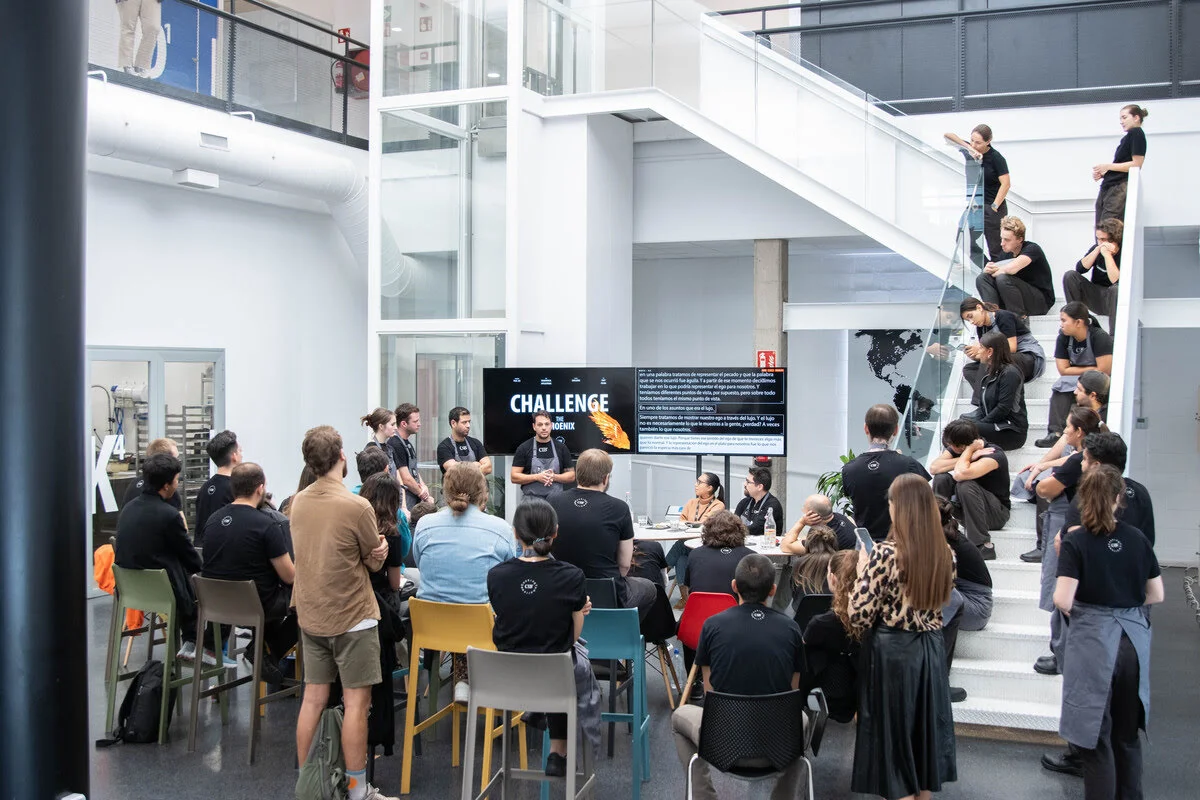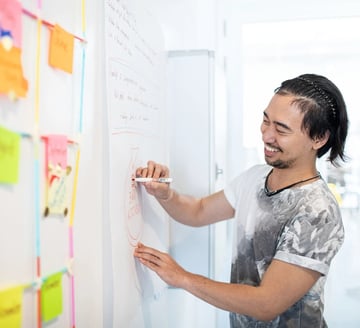What will Gastronomy be like in 2040?
If the present of gastronomy is changing and exciting (and it is clear that it is), what will the future be like?
Society has evolved a lot and very quickly in recent years and technological advances have marked a before and after in how we understand the world. Also in the gastronomic sector. And when we think about the gastronomy of 2040, imagining an evolution similar to the one we have experienced so far this century makes us think of an exciting fusion of tradition and cutting-edge technology.
At the CIB, the chefs of the future learn to think, create, undertake and innovate in order to transform the gastronomy of the 21st century. And based on these same convictions and intentions, the entire CIB staff feels commitment and enthusiasm for gastronomy and a strong curiosity for its future.
So we have encouraged students of the new DCS - Entrepreneurchef Program course and the staff to answer a question: what do you think the Gastronomy of 2040 will be like? Below we share their reflections, which raise doubts but also certainties and, therefore, encourage us to play a key role in the gastronomy of the future.

What will the world look like in 2040? The climatic situation, a determining factor
Barcelona has registered this 2024 the historical record of heat in a February month since data has been recorded, 110 years ago. The Barcelona area is also suffering the most severe drought in the last 200 years, according to studies by the University of Barcelona. Climate change is a worldwide reality and its consequences can be seen in many areas of our daily lives. This is one of the major concerns of the staff and also a determining factor for the gastronomy of 2040.
At CIB we want to imagine a more conscious, sustainable and environmentally friendly 2040, where we have a clearer idea of where food comes from and its environmental impact. We suspect that, at the pace everything is changing, sustainability will not be a priority for many, but nevertheless, more than a goal, sustainability will be an unavoidable reality. The staff has been categorical about the current situation: "If the immediate present does not change, there will be no artisanal products and the planet's biodiversity will be lost".
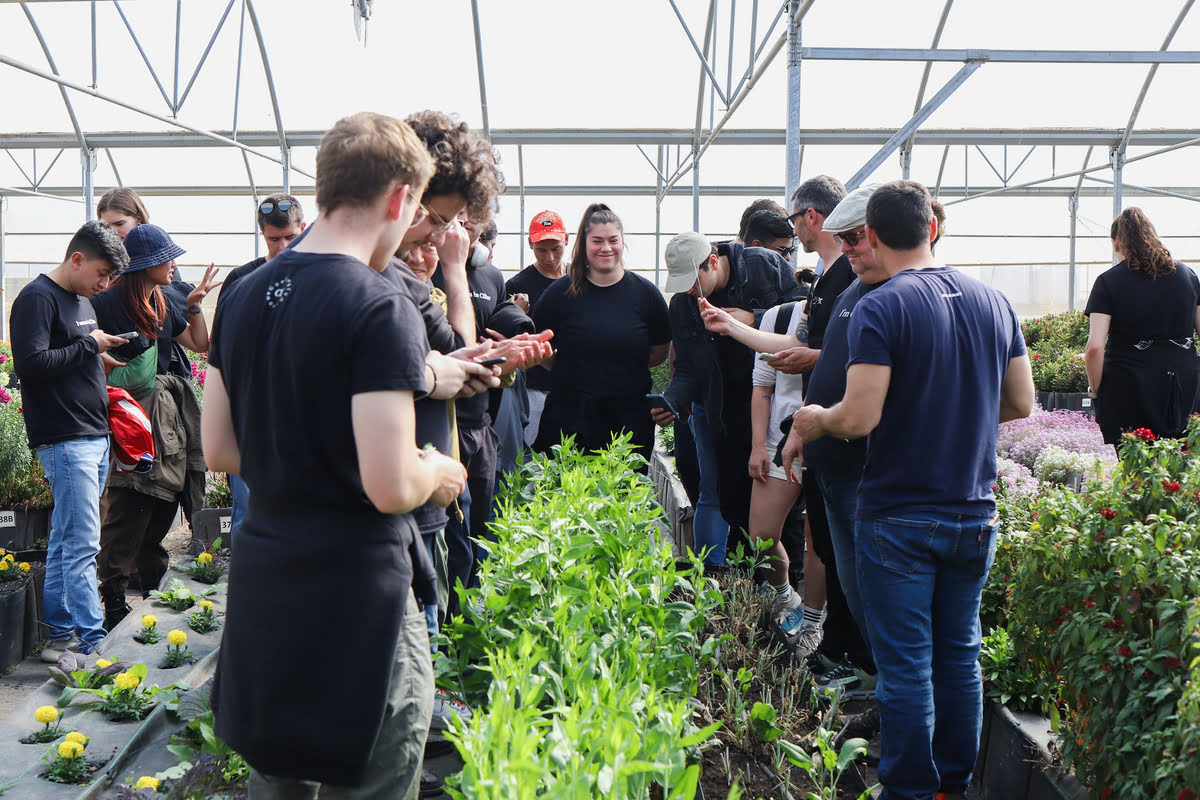
According to a study by Pew Research (2023), 80% of the Spanish population is aware of the need to make changes and contribute to curbing climate change, but only 25% say they have made changes in their lifestyle. Also in the gastronomy sector, the increase in awareness has not yet brought about certain changes that at CIB we consider necessary: reducing pollution from animal exploitation and moving towards eco-sustainable production, reducing or eliminating chemical products in food production, accelerating crop and animal breeding processes, and increasing sustainable and conscious production of local products, especially in view of the lack of resources that will force a drastic reduction in the consumption of natural products.
By 2040, the CIB envisions a figure of the chef much more closely linked to health and sustainability. And for this we continue to work from the training of future CIBers.
“If the immediate present does not change, there will be no artisanal products and the planet's biodiversity will be lost”
Feeding: a nutritional need or a sensory and playful experience?
Both staff and students have raised a very interesting dilemma in their reflection exercise on food and eating in 2040: the conception of “feeding” as a nutritional need will increasingly differ from “eating” as a sensory and unique experience. “Feeding” is conceived as the responsibility to provide the body with the necessary nutritional supplements (in the form of food or not) and “gastronomy” is seen as an experience to get out of the daily routine of everyday eating, a luxury available to few. As chefs, we will have to prepare ourselves to satisfy both needs, which pursue different objectives -survival vs. enjoyment- and which will take place in different places -at home vs. in a restaurant- and with different products -nutritional alternatives to increasingly inaccessible staple foods vs. organic, plant-based or the result of new cultural influences-.
No one can yet guarantee what the food trends of 2040 will be, but at CIB we believe that food will continue to move towards plant-based diets and less meat. The rise of veganism and vegetarianism will be accompanied by new healthy and nutritious options, and also by a greater mix of cultural influences that will lead us to consume even insects or other animals, or plants less common in the west.
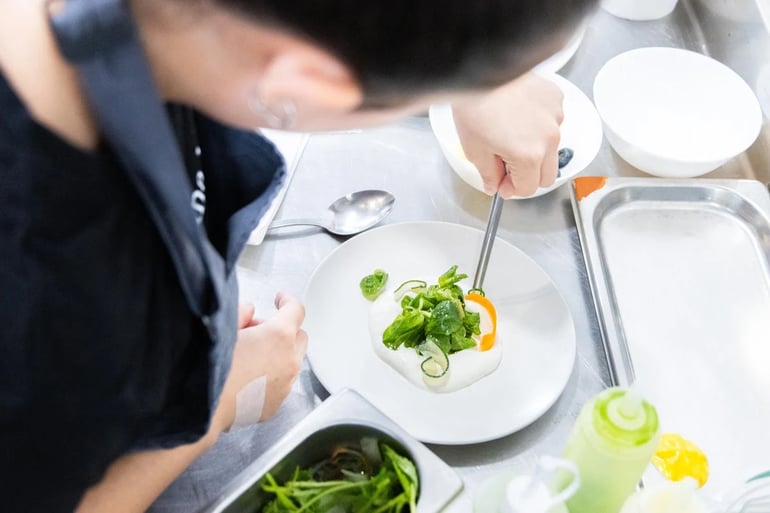
“Products from all over the world, yes, but no artisan products.” This is the B-side according to some staff and students in the DCS program. The value of craftsmanship will increase greatly because of how exclusive it can become. In an even more globalized world and with the loss of food sovereignty of territories (for climatic, economic or simply cyclical reasons), eating sustainably and ecologically will be an option available to few. Although we want a society that is more sensitive to nutrition and health, we do not know what possibilities we have left to protect certain foods, nor how close or far we are from the appearance of new nutritional alternatives for eating. The gastronomy of the future may be very different from the way we conceive it now. That is why we must be prepared for everything that is yet to come.
What will we eat and who will cook it? A healthy relationship between craftsmanship and technology
And closely related to food sourcing, at CIB we are very clear that technology will bring about a paradigm shift in what we will eat, how it will be cooked and how new ways of enjoying a culinary experience will emerge. Technology will allow us to adapt and personalize dining experiences.
Technological advances are an opportunity to create more sustainable diets and personalized approaches, but also to recover culinary customs or traditions. Far from replacing tradition with technology, at the CIB we advocate a conscious use of technology that allows us to correct unhealthy routines and amend what has caused us to lose customs and habits, and thus the cultural and culinary identity of the territories. However, our staff believes that technology can also offer us new culinary experiences such as systems for transmitting smells and aromas from around the world or foods made with 3D printers, mainly as vegetable alternatives to animal protein.
"AI will not take our jobs; those who know how to use it will do so", Ferran Fisas, CIB President
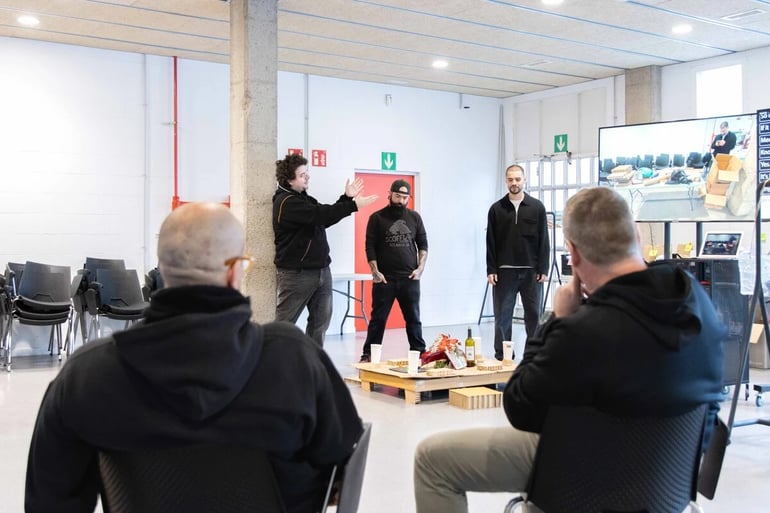
Artificial Intelligence already plays an important role today and its implementation in gastronomy is no longer at an incipient stage. Ferran Fisas, president of CIB, always uses a maxim regarding the use of AI in gastronomy: "AI will not take our jobs; those who know how to use it will do so". We are convinced that AI will be fundamental for the design of menus and the aesthetics of dishes, as well as for the creation of new recipes, new flavor combinations and also in matters of food safety. Without a doubt, it is time to innovate or go extinct. And we have three options: to be a witness, adapt or lead the change.
User experiences for an increasingly less curious and more demanding audience
If the “what” and the “how” will change, we assume that the “where” and the “for whom” will also change. The general feeling at CIB is that the gastronomic offer will polarize, following the logic of food vs. gastronomy. We will have places where we can cover basic needs and specific spaces where we can live gastronomic experiences. Although the walls of restaurants will continue to blur in order to enter the home in a more transparent way in the delivery format, they will go from being temples of eating to being experiential catalysts that seek to generate stimuli. Gastronomic projects focused on providing an experience will sprout up, with new ways of enjoying food and with technology as an ally, giving rise to experiences that we might now consider cold or unnatural, although sophisticated, such as virtual reality or augmented reality technologies where you can virtually visit restaurants around the world. And, perhaps, only certain types of restaurants will become consolidated: single-product restaurants, fifth-range restaurants or highly experiential restaurants.
But... what will that audience be like? How are the consumers of these restaurants like now and how will they be like tomorrow? Both staff and students have mainly agreed on two characteristics of the personality of the consumer or audience of 2040: eating will continue to be a social act of gathering with friends and family, but the audience is becoming less curious and more demanding. Regarding the latter, it has also been emphasized the difficulties this generation has to differentiate between handmade elaborations and something processed, mainly because of how integrated junk food is in the diet of all of us.
It may be that enjoying a complete gastronomic experience is a luxury available to few. And the user experience will be absolutely subject to the health of all the factors we have discussed throughout the article.
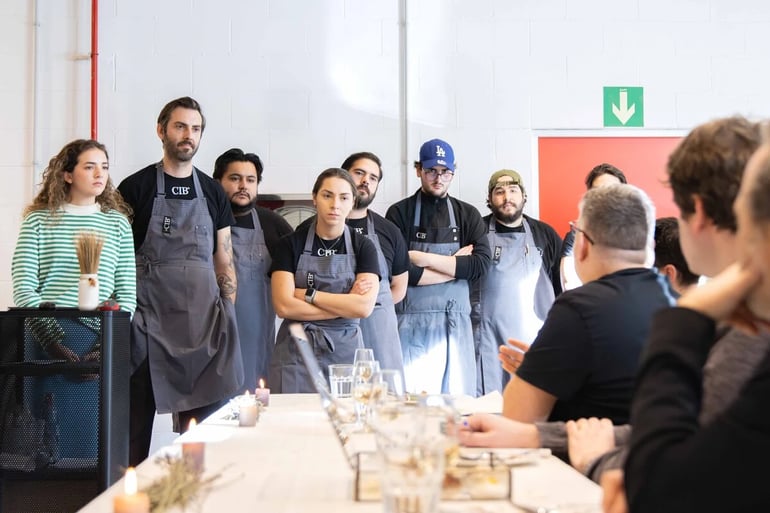
The role of kitchen staff and working conditions in 2040. Will we continue to fight for decent working conditions?
Since the creation of the Culinary Institute of Barcelona, five years ago, we have been claiming for the transformation of 21st century gastronomy into a responsible sector. Two years ago, we promoted the #NoChef initiative to dignify the profession of chef according to the values of today's society. There are numerous studies, analyses and testimonials that show that verbal abuse, panic and bullying are very present in restaurant kitchens. The numbers do not lie and it is urgent to put an end to the violations of moral and labor rights, as well as to continue fighting for equal pay between men and women and for parity in the top positions of the food industry. This is the commitment of the entire CIB team and that is why we are working to ensure that this change takes place from the ground up: the education of the chefs of the future.
On the other hand, thinking about the future in kitchens, we cannot forget technology, which will play a key role with smart appliances. Kitchen robots will be more sophisticated tools and will provide support in kitchens and restaurant dining rooms, as well as in advanced delivery systems. This technology will not replace chefs or other workers, just as we pointed out that it will not happen in the early stages of the design and creation of dishes and gastronomic proposals.
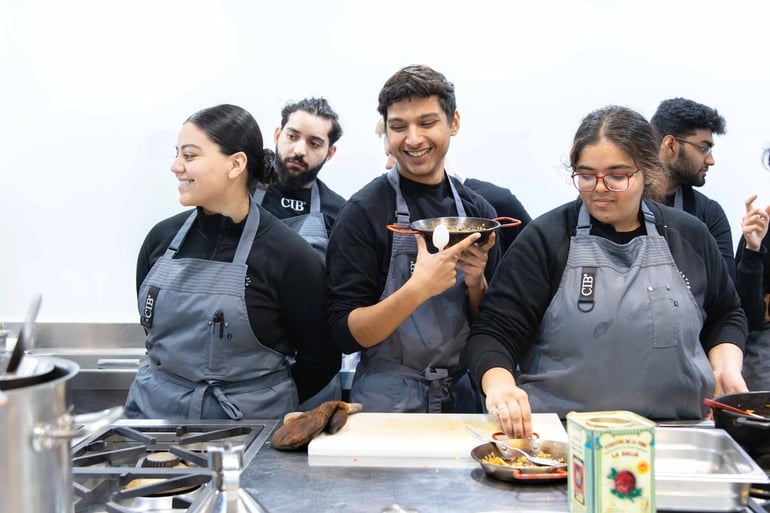
And... what does the AI say about all this?
We encourage you to find out for yourself! For us, it has provided very interesting reflections on advanced culinary technologies, sustainability and food origins, user experience in restaurants and the day-to-day life of a chef in 2040.
Has this article inspired you? We also invite you to share your opinion with us in the following link. How do you imagine the gastronomy of 2040? We have our doubts, but one thing is certain: the future is being cooked at CIB.
